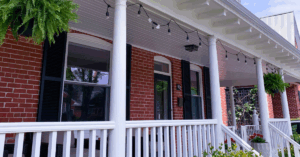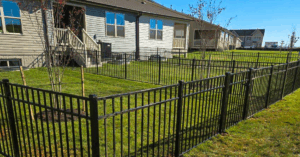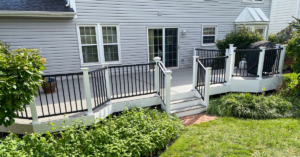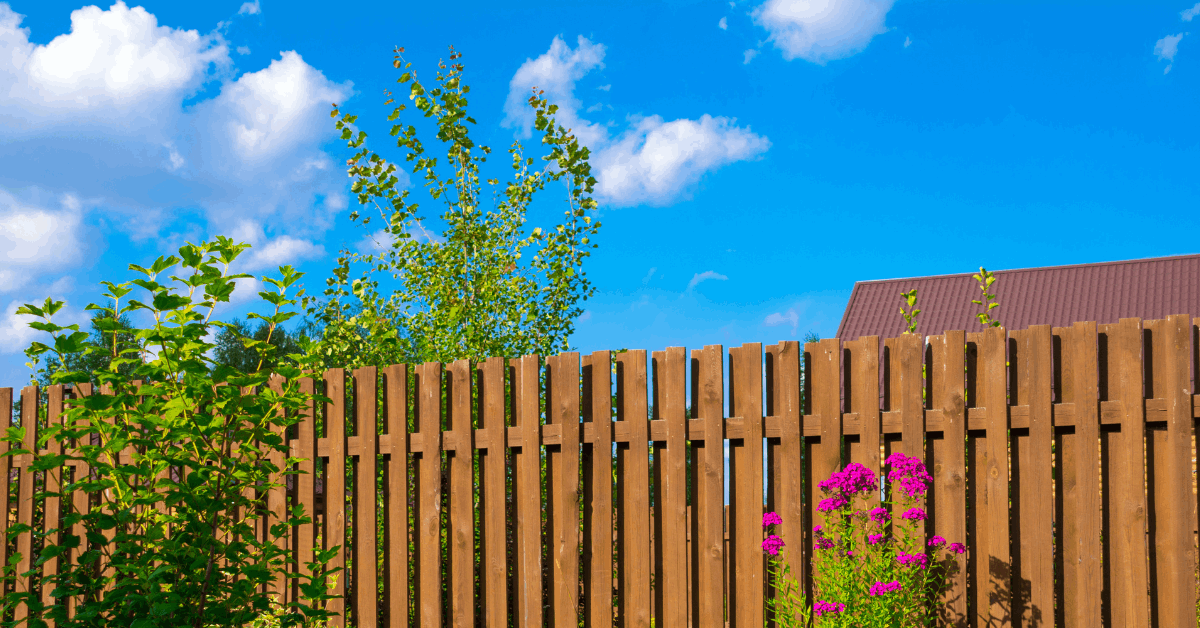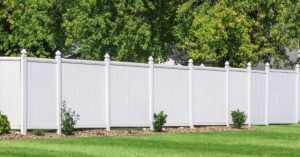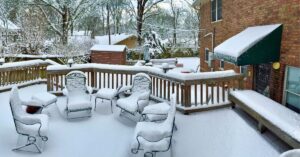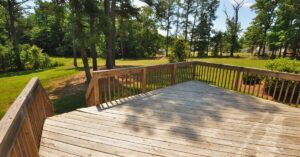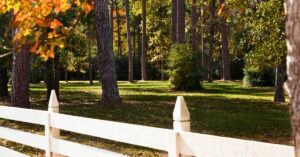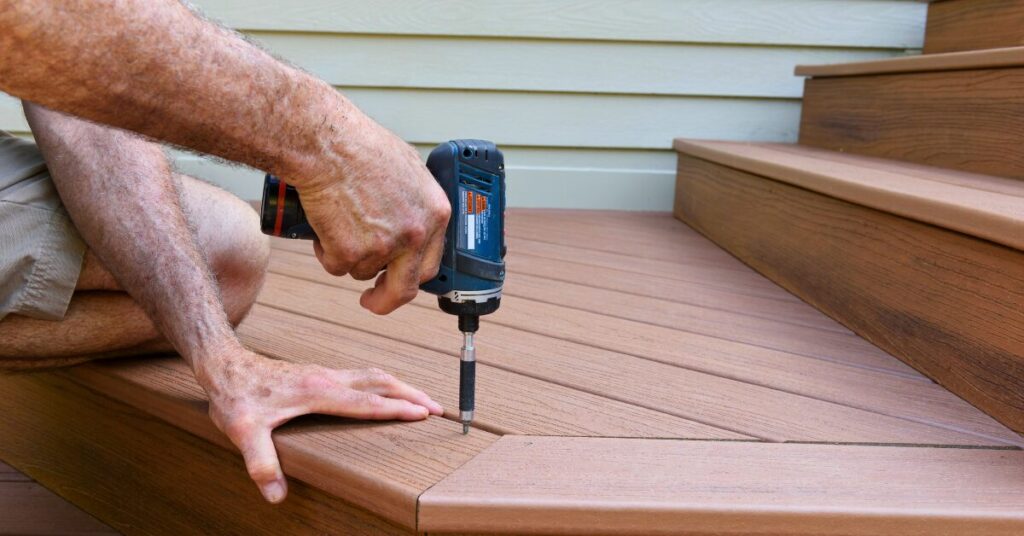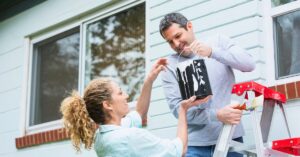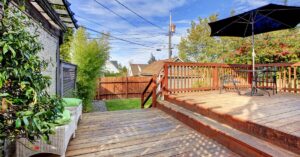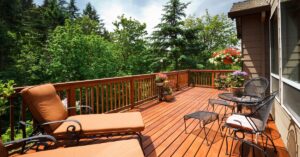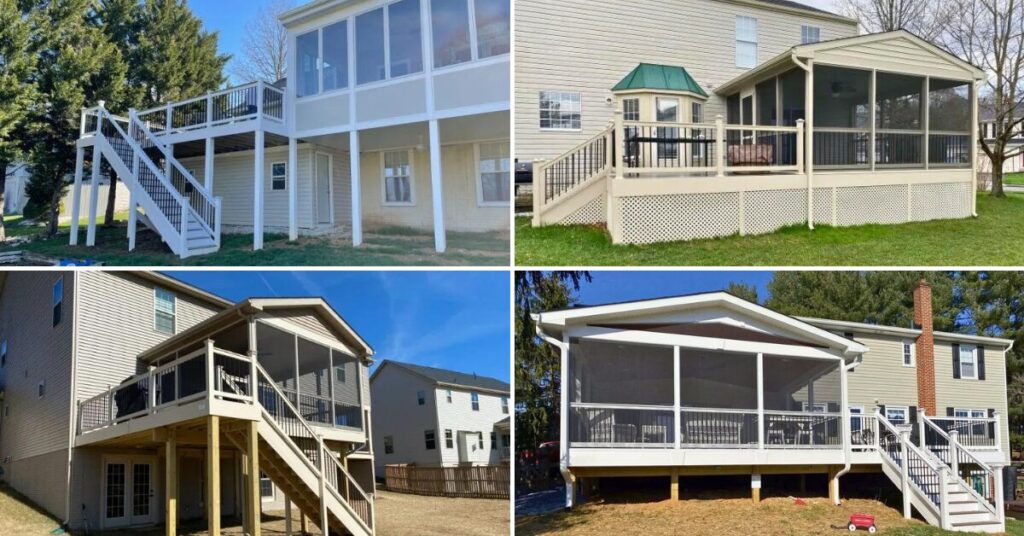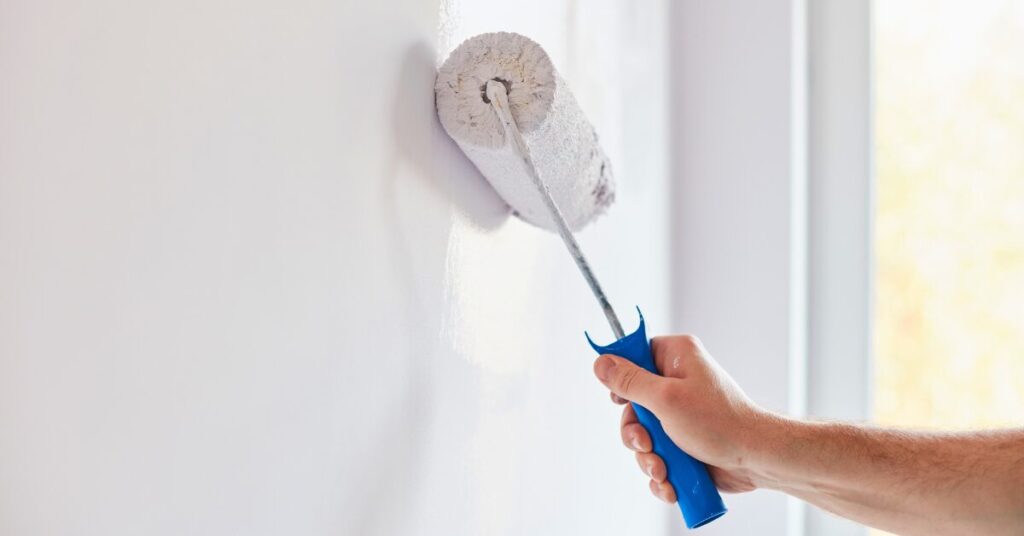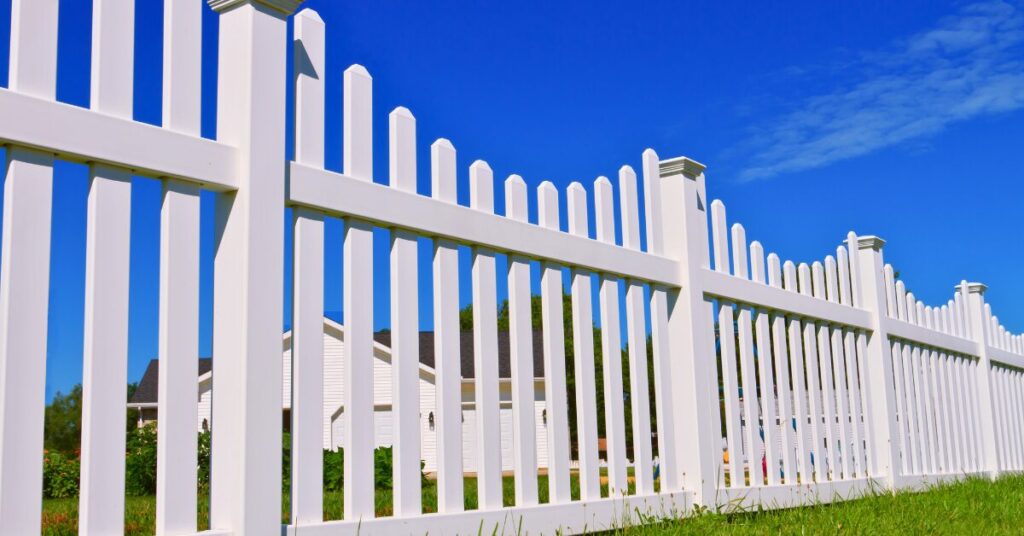
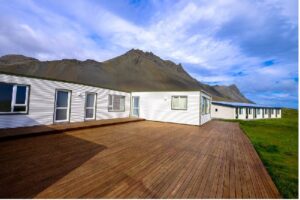 Here are some ways that humid weather could take a toll on your deck.
Here are some ways that humid weather could take a toll on your deck.We still have a little bit of summer left, and that means more heat and humidity could be coming our way. If you have a deck on your property, the humidity is of particular concern because wood isn’t exactly known to mix well with humid weather.
You might notice your deck beginning to show signs of damage, and we feel it’s important for you to know what can go wrong so you won’t run into unpleasant surprises later. By knowing how decking can be damaged, you can take measures to protect it before too much damage accumulates. Here are some ways that humid weather could take a toll on your deck.
Mildew Can Start to Pile Up
Spores of mildew and mold find their way into the air but don’t usually cause any problems until moisture is also present. Mildew won’t grow unless there is enough moisture in the air to keep it hydrated. Usually, relative humidity has to be between 70% and 93%. If the weather is hot outside, this can accelerate how quickly mildew spreads, which is why summer is a season of particular concern for this kind of problem.
A sealant or fungicide should be used to keep mildew from becoming a problem on your deck. Be extra mindful of shady areas where moisture tends to stick around longer.
Humidity Causes the Surfaces of Your Deck to Become Slick
Moisture that stems from humid weather can also impact your deck’s surfaces by making them more slick. Composite decks, as well as decks recently treated with sealants, are especially prone to having slick surfaces. This is because those types of decks make it tougher for moisture to be absorbed into the boards.
Humidity Can Cause Your Decking Boards to Swell
As we just finished mentioning, moisture can potentially get into deck boards. When humidity is found in abundance in the air, there will be more moisture found in your deck’s boards. When enough moisture gets absorbed into your boards, the wood will begin swelling up. After the deck boards have swollen up, your wood will start to move.
You’ll start seeing the distance between your boards begin to narrow, and you might also notice nails beginning to pop up. Boards could even start buckling or bowing, depending on the amount of expansion that occurs.
Contact Albaugh & Sons
Since 2003, Albaugh & Sons, LLC has been dedicated to meeting the fencing, decking, and home remodeling needs of homeowners throughout the greater Frederick area. All of our team members are experienced, well-trained, and committed to exceeding the expectations of every customer.
Visit our website here, and follow us on Facebook, Twitter, Pinterest, and YouTube.

Customer Testimonials
We could talk all day about the happy homeowners we’ve provided renovations for, but the real measure of merit lies in customer reviews. See what people are saying about Albaugh & Sons.

